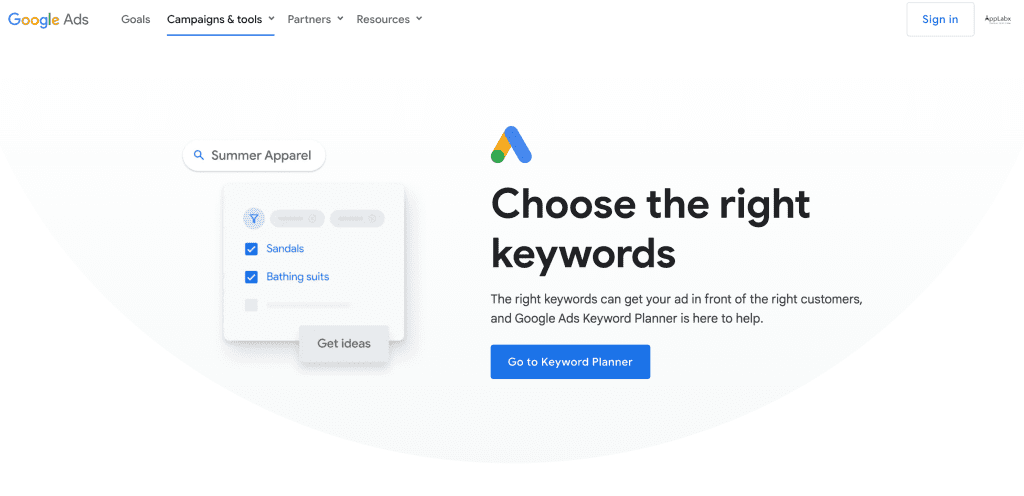Key Takeaways
- Strategic Fusion of Business Goals and SEO: Uncover the transformative impact of aligning your business aspirations with SEO objectives, creating a synergy that propels your digital strategy to new heights.
- SMART Objectives: The Engine of SEO Triumph: Dive into the power of crafting Specific, Measurable, Achievable, Relevant, and Time-bound objectives, unlocking precision in execution and measurable success in the competitive digital landscape.
- Continuous Adaptation for Digital Mastery: Embrace the mandate of continuous improvement and adaptation, navigating algorithmic shifts, user behavior nuances, and emerging trends—a pivotal strategy for mastering the dynamic SEO ecosystem.
In the fast-evolving landscape of online business, where digital footprints are becoming increasingly vital, the need for a robust and effective SEO strategy has never been more pronounced.
As businesses strive to carve their niche in the expansive digital realm, one critical cornerstone stands tall – the meticulous definition of business goals and objectives for SEO.
The inception of your journey into the digital domain demands a strategic and purposeful approach to SEO, a journey that transcends mere keyword optimization and delves deep into the heart of what propels your business forward.
In this comprehensive guide, we embark on an illuminating exploration into the intricate process of defining business goals and objectives for SEO, unravelling the symbiotic relationship between overarching business aspirations and the tactical intricacies of search engine optimization.

The SEO Symphony: Where Business Goals Take Center Stage
In the symphony of digital marketing, SEO plays a pivotal role as the conductor, orchestrating harmonies that resonate across the vast expanse of the internet.
However, the effectiveness of this orchestration hinges on a fundamental precursor – the clarity and precision with which business goals and objectives are defined.
Why Define Business Goals for SEO?
Understanding the ‘why’ is imperative before delving into the ‘how.’ Your business goals serve as the compass guiding every SEO endeavor.
Whether it’s revenue growth, brand recognition, or customer acquisition, the alignment of SEO objectives with these broader business goals sets the stage for a powerful and purpose-driven digital strategy.
Imagine SEO as the compass, and your business goals as the destination.
Without a clear map, your SEO efforts risk wandering aimlessly in the vast digital wilderness.
This guide seeks to not only illuminate the importance of this alignment but also to provide you with a detailed roadmap for the journey ahead.
Navigating the SEO Landscape with Purpose
In the tumultuous sea of search engine algorithms, user behaviors, and market dynamics, a purposeful approach becomes the North Star.
We venture beyond the surface-level understanding of SEO, transcending the confines of keyword rankings, to delve into the strategic core that defines success in the digital realm.
As we navigate this intricate landscape, we’ll uncover the significance of SMART objectives – goals that are Specific, Measurable, Achievable, Relevant, and Time-bound.
These objectives not only crystallize your aspirations into actionable milestones but also provide a benchmark for measuring the efficacy of your SEO initiatives.
Embarking on the Journey: From Business Goals to SEO Objectives
The journey begins by peeling back the layers of your overarching business goals.
Whether you’re an e-commerce giant eyeing revenue spikes or a budding startup aiming for brand recognition, the process of aligning these goals with SEO objectives is a nuanced art.
In the upcoming sections, we’ll explore the intricacies of conducting an SEO SWOT analysis, dissecting the strengths and weaknesses of your current strategies, identifying growth opportunities, and fortifying your defenses against potential threats.
This introspective examination sets the stage for a bespoke SEO strategy tailored to your business’s unique DNA.
Beyond Keywords: Integrating SEO into Your Marketing Symphony
SEO doesn’t exist in isolation; it’s an integral note in the symphony of your overall marketing strategy.
As we unravel the layers of synergy between SEO and other marketing channels, we uncover the potential for a harmonized and potent approach.
This involves not just optimizing for search engines but leveraging SEO to enhance your cross-channel marketing endeavors.
Setting Sail: Crafting an Actionable SEO Plan
With the groundwork laid, it’s time to set sail into the implementation phase.
This involves translating your defined objectives into actionable tasks – from meticulous keyword research and optimization to on-page and off-page strategies, and the intricate dance of technical SEO enhancements.
We’ll guide you through the process of assigning responsibilities, establishing a monitoring framework, and ensuring a seamless execution of your SEO plan.
The Art of Adaptation: Staying Ahead in the SEO Race
In the dynamic realm of digital marketing, change is the only constant. This guide doesn’t merely equip you with static strategies but instills a mindset of adaptability.
We explore the art of staying updated with SEO algorithm changes, flexibly adapting strategies based on performance data, and creating feedback loops for perpetual improvement.
But, before we venture further, we like to share who we are and what we do.
About AppLabx
From developing a solid marketing plan to creating compelling content, optimizing for search engines, leveraging social media, and utilizing paid advertising, AppLabx offers a comprehensive suite of digital marketing services designed to drive growth and profitability for your business.
AppLabx is well known for helping companies and startups use SEO to drive web traffic to their websites and web apps.
At AppLabx, we understand that no two businesses are alike. That’s why we take a personalized approach to every project, working closely with our clients to understand their unique needs and goals, and developing customized strategies to help them achieve success.
If you need a digital consultation, then send in an inquiry here.
How to Define Your Business Goals and Objectives for SEO
- Understanding Business Goals
- Setting SMART Objectives for SEO
- Conducting an SEO SWOT Analysis
- Integrating SEO with Overall Marketing Strategy
- Creating an Actionable SEO Plan
- Adapting to Changes and Continuous Improvement
1. Understanding Business Goals

Defining Overarching Business Goals
In the dynamic landscape of digital commerce, a profound understanding of overarching business goals is the cornerstone upon which successful SEO strategies are built.
Before delving into the intricacies of aligning these goals with SEO objectives, it’s crucial to establish a clear vision for your business.
Also, read our top guide on “What is Goal-Setting Theory? Understanding the Science Behind It” to learn more about setting the right goals.
Revenue Growth as a Pinnacle Goal
Businesses universally strive for revenue growth, making it a pivotal goal that significantly influences SEO strategies.
According to a report, global e-commerce sales are expected to reach 8.1 trillion dollars by 2026, underscoring the immense potential for revenue generation in the digital space.
Aligning SEO goals with revenue objectives involves identifying high-converting keywords, optimizing product pages, and ensuring a seamless user experience to drive sales.
Elevating Brand Awareness
Brand awareness is a multifaceted goal that transcends mere recognition, delving into the realms of trust and loyalty.
A study revealed that 59% of customers prefer to buy products from familiar brands than ones they have never heard of.
SEO plays a pivotal role in this context, with strategies like content marketing, social media integration, and link building enhancing online visibility and bolstering brand recognition.
Customer Acquisition Strategies
Customer acquisition is the lifeblood of any business, and SEO serves as a powerful conduit for attracting and retaining customers.
By optimizing for relevant keywords and creating valuable content, businesses can attract organic traffic, converting visitors into customers and advocates.
Aligning Business Goals with SEO Objectives
Once the overarching business goals are delineated, the next crucial step is to align these objectives with specific and measurable SEO goals.
This synergy ensures that every SEO initiative contributes directly to the overarching success of the business.
Identifying Key Performance Indicators (KPIs)
Key Performance Indicators (KPIs) serve as the compass that guides SEO efforts towards business goals.
For instance, if the goal is revenue growth, KPIs may include conversion rates, average order value, and organic revenue.
Google Analytics and other SEO tools provide insightful data on these metrics, allowing businesses to measure and refine their strategies based on performance.

Linking SEO to Broader Business Outcomes
SEO is not an isolated entity but an integral component of the overall business strategy.
A study found that the top 3 Google search results get 54.4% of all clicks, emphasizing the critical importance of SEO in driving organic traffic and influencing consumer behaviour.
By aligning SEO with broader business outcomes, businesses can harness the full potential of organic search to achieve their goals.
2. Setting SMART Objectives for SEO
In the realm of search engine optimization, the success of a strategy is often contingent upon the clarity and specificity of the objectives set.
Enter SMART objectives – a framework that ensures SEO goals are Specific, Measurable, Achievable, Relevant, and Time-bound.
This section delves into the intricacies of crafting SMART objectives for SEO that resonate with broader business goals.

Specific Goals Tailored to the Business
- Example: Increasing Organic Traffic
- Specificity: Rather than a generic goal like “improving online presence,” a specific goal could be to increase organic traffic by 30% within the next six months.
- Rationale: Specificity clarifies the direction of the SEO strategy, guiding efforts toward a tangible outcome.
Measurable Objectives to Track Progress
- Example: Enhancing Conversion Rates
- Measurability: Instead of a vague goal like “boosting conversions,” a measurable objective might be to increase the conversion rate from organic traffic by 15%.
- Rationale: Measurable objectives provide a quantitative benchmark, enabling precise tracking of SEO performance.
Achievable Goals Within Realistic Constraints
- Example: Improving Page Load Speed
- Achievability: Setting achievable goals involves realistic targets, such as reducing page load speed to under three seconds, considering the technical constraints and resources available.
- Rationale: Goals that are within reach maintain motivation and prevent frustration within the SEO team.
Relevant Objectives Contributing to Overall Business Success
- Example: Targeting Niche Keywords
- Relevance: Instead of pursuing keywords with high search volume but low relevance, a relevant objective might be to rank within the top three positions for niche keywords directly related to the business.
- Rationale: Relevant objectives align SEO efforts with the business’s target audience and industry, ensuring a more impactful strategy.
Time-Bound Goals for Effective Planning and Execution
- Example: Implementing On-Page SEO Changes
- Time-Bound: Rather than an indefinite goal like “improving on-page SEO,” a time-bound objective could be to implement on-page optimizations, including meta tags and content updates, within the next four weeks.
- Rationale: Time-bound goals instill a sense of urgency, fostering timely and efficient execution of SEO tasks.
Crafting SMART objectives isn’t just a theoretical exercise; it directly influences the success of SEO strategies. The following sub-points elaborate on the tangible impact of SMART objectives on SEO performance.
Specific Goals Enhance Focus and Precision
- Impact: A study by Ahrefs found that long-tail keywords are generally easier to rank for and tend to attract searchers with more specific intent.
- Implication: Specificity in SEO goals, such as targeting long-tail keywords, enhances focus and increases the likelihood of improved rankings.
Measurable Objectives Facilitate Data-Driven Decisions
Implication: Measurable objectives in SEO, such as tracking conversion rates, empower businesses to make data-driven decisions and optimize strategies for better results.
Achievable Goals Boost Team Morale and Productivity
Implication: Achievable goals in SEO contribute to a positive work environment, boosting team morale and productivity.
Relevant Objectives Increase User Engagement
Implication: Relevant SEO objectives, such as targeting keywords aligned with user intent, can lead to increased user engagement and satisfaction.
Time-Bound Goals Drive Timely Implementation
Implication: Time-bound SEO goals ensure timely implementation, preventing procrastination and fostering a proactive approach.
3. Conducting an SEO SWOT Analysis
In the ever-evolving landscape of search engine optimization (SEO), staying ahead requires a comprehensive understanding of your digital ecosystem.
A powerful tool in this endeavor is the SEO SWOT analysis, a strategic examination that unveils the internal Strengths and Weaknesses, and external Opportunities and Threats that shape your SEO landscape.

Strengths in Current SEO Strategies
In-Depth Keyword Knowledge
- Example: An e-commerce site specializing in tech gadgets might possess a robust understanding of high-converting keywords such as “best smartphones” or “latest tech innovations.”
- Leveraging tools like Google Keyword Planner or Semrush, businesses can gain quantitative insights into the search volume and competition for relevant keywords, providing a competitive edge.

High-Quality Content Assets
- Example: A blog consistently produces in-depth and valuable content related to industry trends and product reviews.
- Quality content not only enhances user engagement but also attracts organic backlinks, a crucial factor in search engine ranking algorithms.
Strong Backlink Profile
- Example: A website with authoritative backlinks from reputable sources in the industry.
- Backlinks from trusted domains contribute significantly to search engine trust.
Weaknesses and Areas for Improvement
Technical SEO Challenges
- Example: Issues with website speed, mobile responsiveness, or crawlability.
- Google’s Core Web Vitals update emphasizes factors like page loading speed, and addressing technical challenges is paramount for maintaining a favorable search ranking.
Limited Content Diversity
Example: Relying solely on blog posts without diversifying content formats like videos, infographics, or podcasts.
Inadequate Local SEO Optimization
Example: A local business with incomplete Google My Business information.
Opportunities for SEO Growth
Emerging Trends in Voice Search
- Example: A content strategy tailored for voice search queries.
- Forecasts suggest that by 2024, the number of digital voice assistants will reach 8.4 billion units.
Leveraging Video Content for SEO
- Example: Creating engaging video content related to products or services.
- During the second quarter of 2023, online videos recorded an audience reach of around 92.3 per cent among internet users worldwide.
Threats to SEO Success
Algorithmic Changes
- Example: Google’s major algorithm updates affecting search rankings.
- Sudden algorithmic changes can lead to fluctuations in rankings. Businesses need to stay agile and adapt strategies accordingly.
Increasing Competition
Example: New competitors entering the market with robust SEO strategies.
4. Integrating SEO with Overall Marketing Strategy
In the intricate dance of digital marketing, the synergy between Search Engine Optimization (SEO) and broader marketing strategies is a powerful orchestrator of online success.
This section delves into the imperative of seamlessly integrating SEO into the overall marketing symphony, exploring strategies, examples, and data-backed insights.

Ensuring Synergy Between SEO and Other Marketing Channels
Harmonizing Content Marketing and SEO
- Example: A comprehensive content marketing strategy aligned with SEO objectives, incorporating keyword optimization and link-building.
- According to HubSpot, companies who blog receive 97% more links to their website than those who don’t, emphasizing the symbiotic relationship between content creation and SEO.
Social Media Integration for Amplified Reach
- Example: Sharing optimized content across social media platforms to enhance visibility and drive organic traffic.
- Statista reports that in 2022, over 4.59 billion people were using social media worldwide, highlighting the potential for brand exposure and traffic generation.
Leveraging SEO for Cross-Channel Marketing Success
Influencer Marketing and SEO Collaboration
- Example: Collaborating with influencers to create content that not only resonates with the target audience but also attracts valuable backlinks.
- A study by Influencer Marketing Hub found that companies earn $5.20 for each dollar invested in influencer advertising.
Email Marketing Synergy with SEO
- Example: Incorporating strategically placed links in email campaigns to drive traffic to optimized landing pages.
- According to Statista, by 2025, the number of global e-mail users is expected to reach a total of 4.6 billion, providing a substantial audience for targeted marketing efforts.
Coordinating Efforts for a Cohesive Marketing Approach
Seamless Integration of Paid Advertising and SEO
- Example: Aligning paid search campaigns with SEO strategies, ensuring consistent messaging and keyword targeting.
- Google Ads can generate an average return on investment (ROI) of $2 for every $1 spent, underscoring the potential for paid advertising to complement SEO efforts.
Unified Brand Messaging Across Channels
- Example: Ensuring brand consistency in messaging across SEO, social media, and traditional marketing channels.
- A study revealed that consistent brand presentation across all platforms can increase revenues by up to 23%.
The Impact of Integration on SEO Performance
Improved Brand Visibility and Authority
By integrating online reviews as part of a broader marketing strategy, businesses can enhance their SEO performance.
Enhanced User Engagement and Conversion Rates
Integration fosters a cohesive content strategy, positively impacting user engagement and conversion rates.
5. Creating an Actionable SEO Plan
Embarking on a successful SEO journey requires more than mere aspirations—it demands a meticulously crafted and actionable plan.
This section delves into the intricacies of creating an SEO plan that not only aligns with business goals but also provides a roadmap for implementation and continuous improvement.

Breaking Down Objectives into Actionable Tasks
Comprehensive Keyword Research and Optimization
- Example: For an online shoe retailer, targeting specific long-tail keywords such as “comfortable running shoes for women” or “best affordable hiking boots.”
- A study reveals that long-tail keywords tend to drive more targeted traffic to websites.
On-Page and Off-Page SEO Strategies
- Example: Implementing on-page optimizations like meta tag improvements and content enhancements, coupled with off-page strategies such as building high-quality backlinks.
- Backlinks can help improve your site’s visibility and organic ranking.
Technical SEO Improvements
Example: Addressing technical challenges, including improving website speed, enhancing mobile responsiveness, and ensuring proper website crawlability.
Assigning Responsibilities and Roles Within the Team
SEO Team Structure and Roles
Example: Designating team members for specific tasks, such as a content specialist for keyword optimization, a developer for technical improvements, and a link-building expert for off-page strategies.
Collaboration with Other Departments
- Example: Coordinating with the marketing team for content creation, the IT department for technical improvements, and the customer service team for feedback and insights.
- A survey that 73% of digitally maturing companies create an environment where cross-functional teams can succeed.
Establishing a Monitoring and Reporting System for Progress Tracking
Implementing Analytics and Tracking Tools
- Example: Utilizing tools like Google Analytics, Semrush, or Moz to track key performance indicators (KPIs) such as organic traffic, keyword rankings, and conversion rates.
- According to a report, 87 per cent of B2B marketers say they use analytics tools to manage their content marketing efforts.
Regular Reporting and Analysis
Example: Generating monthly or quarterly reports to assess the impact of SEO strategies on business objectives and making data-driven adjustments accordingly.
Adapting Strategies Based on Performance Data
Flexibility in SEO Strategies
- Example: Adjusting keyword targeting based on emerging trends, updating content in response to user behaviour, and refining technical SEO elements to align with algorithm changes.
- 93% of online experiences begin with a search engine, emphasizing the need for adaptability in SEO strategies.
Implementing Feedback Loops for Constant Improvement
- Example: Encouraging continuous feedback from users, monitoring customer reviews, and leveraging insights to refine content and user experience.
- Organizations with strong feedback cultures are 3.6 times more likely to be top performers in their industry.
6. Adapting to Changes and Continuous Improvement
In the dynamic realm of search engine optimization (SEO), adaptability and continuous improvement stand as pillars of success.
This section delves into the strategies and practices essential for staying ahead of the curve, embracing changes, and perpetually refining SEO approaches for sustained excellence.

Staying Updated with SEO Algorithm Changes
The Impact of Algorithmic Evolution
Example: Google’s frequent algorithm updates, such as the BERT update that emphasizes context and understanding user intent.
Proactive Monitoring of Industry Trends
- Example: Keeping abreast of emerging trends, such as the rise of mobile-first indexing or the increasing importance of user experience.
- In January 2023, mobile devices excluding tablets accounted for nearly 57 percent of web page views worldwide, highlighting the significance of mobile-first strategies.
Flexibility in Adapting Strategies Based on Performance Data
Agile Keyword Strategy
- Example: Adjusting keyword targeting based on real-time search trends and user behaviour.
- Google Trends provides insights into the popularity of specific search terms, allowing businesses to adapt their keyword strategies.
Content Optimization and Refreshing
- Example: Regularly updating and refreshing existing content based on changing user needs and preferences.
- HubSpot’s research indicates that Google is looking for new and fresh content.
Implementing Feedback Loops for SEO Performance
User Feedback and Behavior Analysis
Example: Analyzing user feedback, comments, and behaviour metrics to identify areas for improvement.
A/B Testing for Continuous Optimization
Example: Conducting A/B tests on elements like headlines, meta descriptions, or call-to-action buttons to determine what resonates best with the audience.
The Role of AI and Technology in Adaptive SEO
Leveraging AI for Predictive Analysis
- Example: Implementing AI tools for predictive analysis of user behavior and search trends.
- A report reveals that 51% of marketers are already using AI.
Utilizing SEO Tools for Real-Time Monitoring
Example: Relying on SEO tools like Semrush or Ahrefs for real-time monitoring of keyword rankings, backlinks, and website health.
Encouraging a Proactive Culture of Continuous Improvement
Employee Training and Skill Development
- Example: Investing in ongoing training programs to ensure that the SEO team is equipped with the latest skills and knowledge.
- 94% of employees would stay at a company longer if it invested in their career development.
Regular Performance Reviews and Audits
Example: Conducting regular performance reviews and SEO audits to identify areas for improvement and refinement.
Conclusion
In the ever-evolving landscape of digital supremacy, the intricacies of SEO objectives stand as the compass guiding businesses toward online triumph.
Defining and refining your business goals and objectives for SEO isn’t merely a strategic exercise; it’s a dynamic roadmap to digital prominence and sustained success.
As we conclude this exploration into the art and science of aligning business ambitions with SEO strategies, let’s encapsulate the key takeaways that propel businesses toward the zenith of online visibility and engagement.
Strategic Alignment for Unparalleled Impact
In the quest for digital supremacy, the linchpin lies in aligning business goals with SEO objectives.
Whether the aim is revenue growth, brand awareness, or customer acquisition, a strategic marriage with SEO amplifies the impact.
The data-backed insights presented throughout this exploration underline the symbiotic relationship between overarching business goals and SEO triumph.
The Crucial Role of SMART Objectives
Crafting SMART objectives isn’t a mere formality; it’s the bedrock of SEO success.
Specific, Measurable, Achievable, Relevant, and Time-bound goals function as the North Star, ensuring precision in execution and measurable outcomes.
A Symphony of Integration Across Marketing Channels
The interconnected symphony of marketing channels harmonizes seamlessly when SEO takes center stage.
Integrating SEO into the broader marketing strategy isn’t just a best practice; it’s a necessity for holistic digital triumph.
From content marketing and social media integration to paid advertising synergy, businesses that orchestrate a cohesive blend reap the rewards of amplified visibility and audience resonance.
Continuous Adaptation: A Mandate for SEO Mastery
As the digital landscape evolves, the only constant in the SEO realm is change.
Adapting to algorithmic shifts, user behavior nuances, and emerging trends is not a choice—it’s a mandate for SEO mastery.
The insights shared on staying agile, leveraging technology, and fostering a culture of continuous improvement unveil the keys to not just surviving but thriving in the ever-shifting SEO ecosystem.
The Promise of a Strategic SEO Plan
A strategic SEO plan is not a static document; it’s a living, breathing blueprint for digital triumph.
From breaking down objectives into actionable tasks and assigning roles within the team to establishing robust monitoring systems, the components of an effective SEO plan are the gears that drive the engine of online success.
The Digital Symphony: A Harmonious Blend of Art and Science
In the vast canvas of digital conquest, the orchestration of SEO objectives is both an art and a science.
It requires the finesse to understand user intent, the precision to navigate algorithms, and the adaptability to thrive in the ever-evolving digital symphony.
Businesses that master this blend emerge as virtuosos, creating harmonies that resonate through search engine rankings, user experiences, and, ultimately, bottom-line success.
As we conclude this journey into the realm of defining business goals and objectives for SEO, remember that it’s not just about conquering the search results; it’s about crafting a digital legacy.
The insights, examples, and strategies shared in this exploration serve as beacons, illuminating the path to digital triumph. So, set your sights high, craft your SEO symphony, and let the echoes of success reverberate through the digital realm.
The journey to SEO excellence begins with a strategic vision, and the destination is defined by the unwavering pursuit of that vision. Onward to digital triumph.
If you are looking for a top-class digital marketer, then book a free consultation slot here.
If you find this article useful, why not share it with your friends and business partners, and also leave a nice comment below?
We, at the AppLabx Research Team, strive to bring the latest and most meaningful data, guides, and statistics to your doorstep.
To get access to top-quality guides, click over to the AppLabx Blog.
People also ask
How do I determine my SEO goals?
Determine your SEO goals by aligning them with overarching business objectives. Identify key performance indicators (KPIs) such as organic traffic, keyword rankings, and conversion rates. Set SMART goals—Specific, Measurable, Achievable, Relevant, and Time-bound—to provide clarity and direction for your SEO strategy. Regularly assess and adapt goals based on performance data and industry trends for sustained online success.
What are SEO goals and describe objectives?
SEO goals are overarching targets, such as increased online visibility or higher rankings. Objectives, on the other hand, are specific, measurable actions taken to achieve those goals—like optimizing content, building quality backlinks, or enhancing website speed. Together, they form a strategic roadmap for digital success.
How do you set and achieve realistic SEO goals?
Set realistic SEO goals by aligning with business objectives, conducting thorough keyword research, and analyzing competitor strategies. Break down goals into actionable, measurable steps, and regularly evaluate performance using analytics. Adapt strategies based on insights for continuous improvement and tangible success.




































